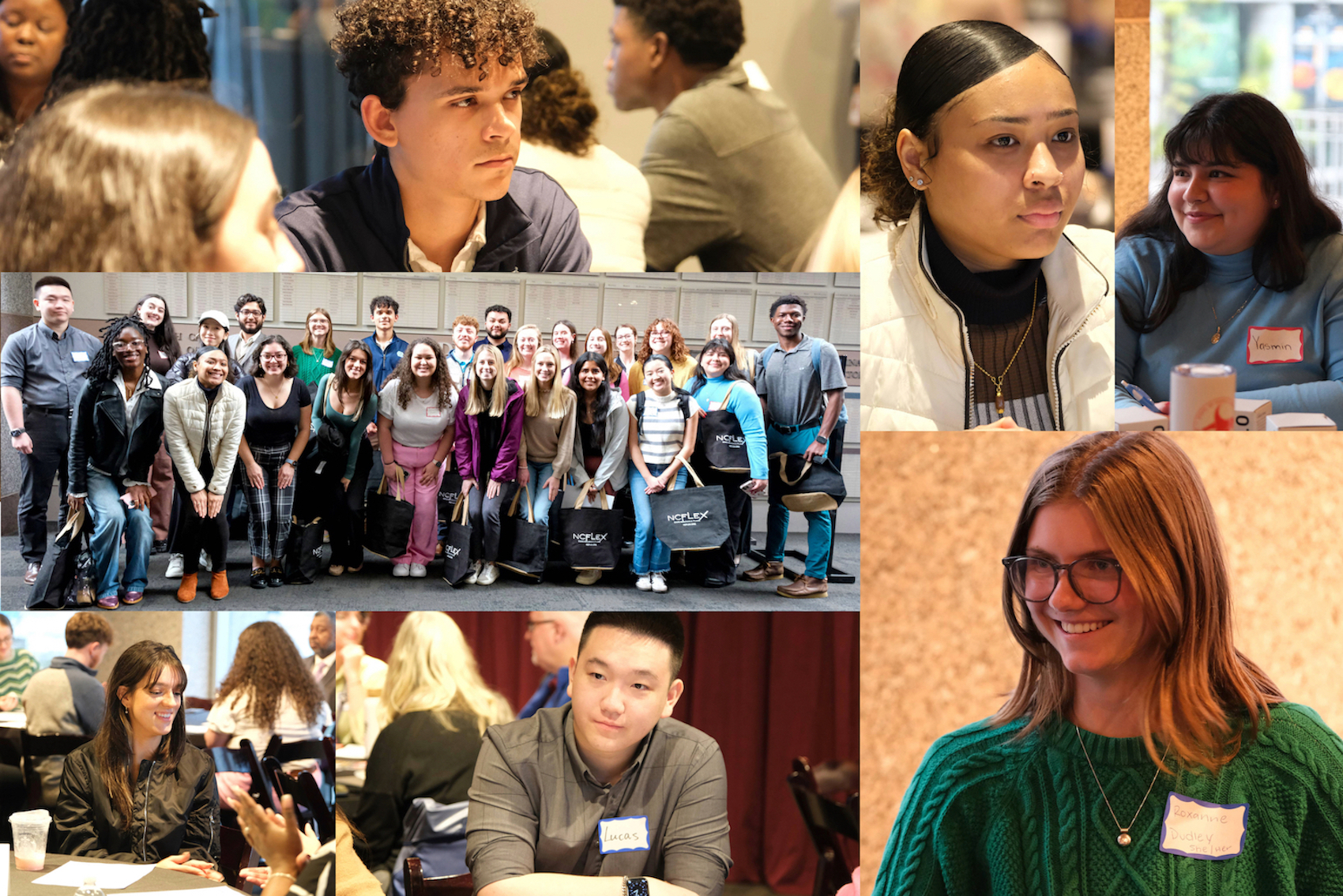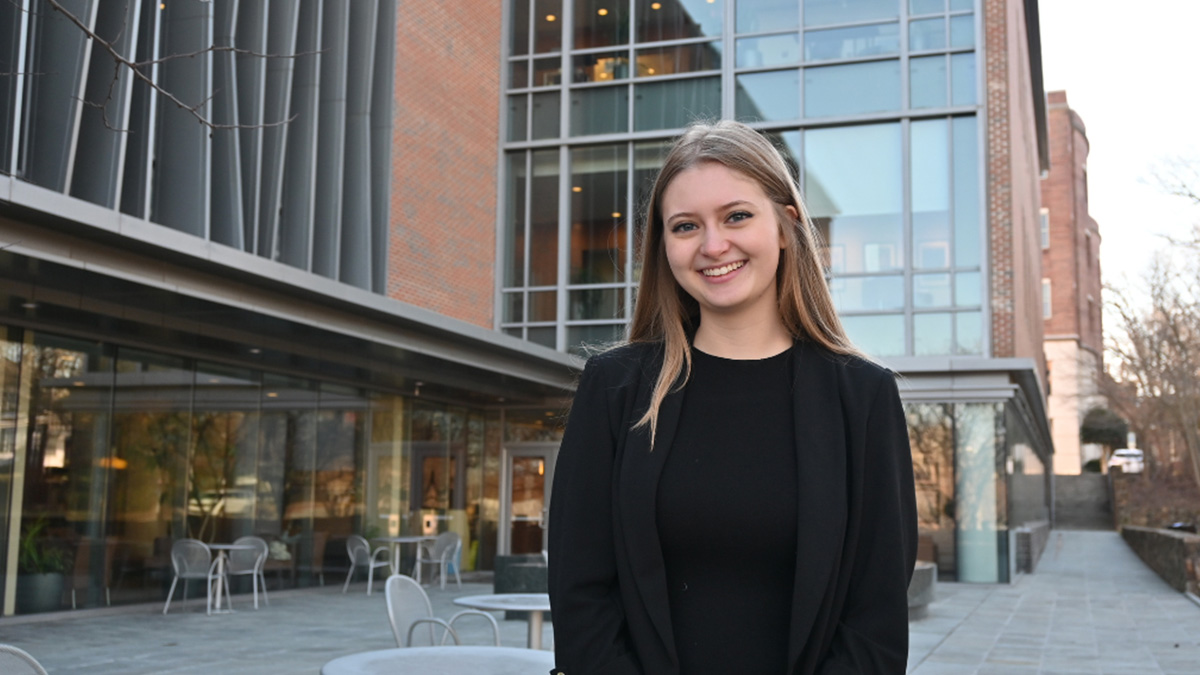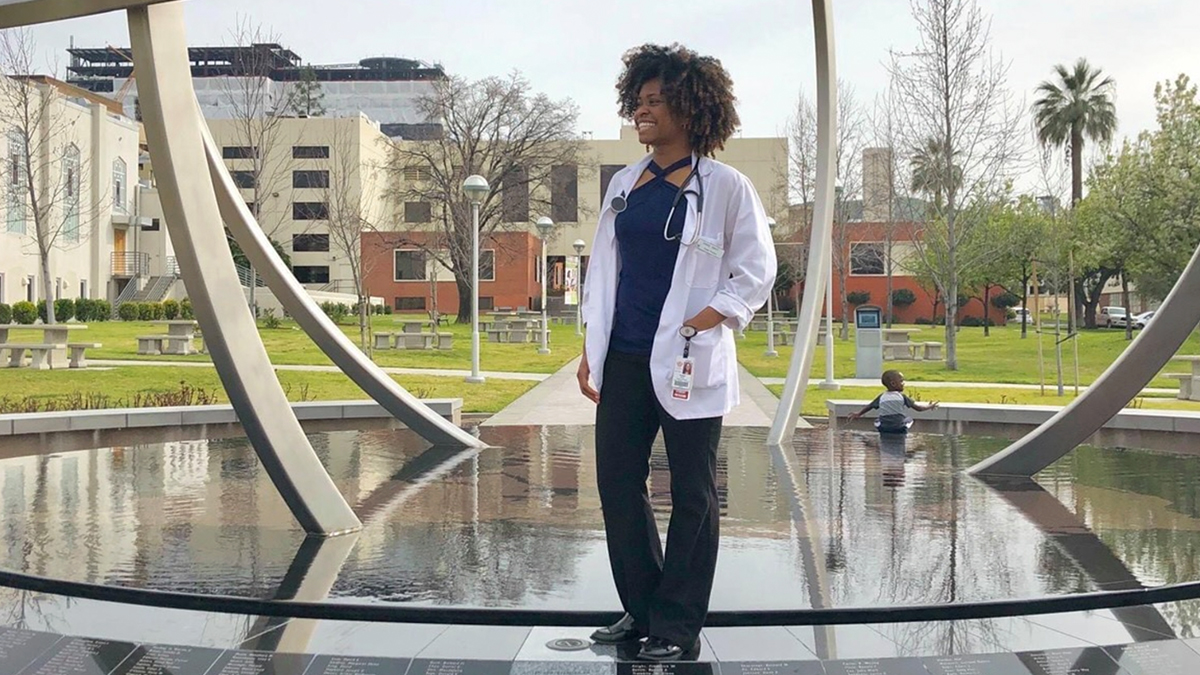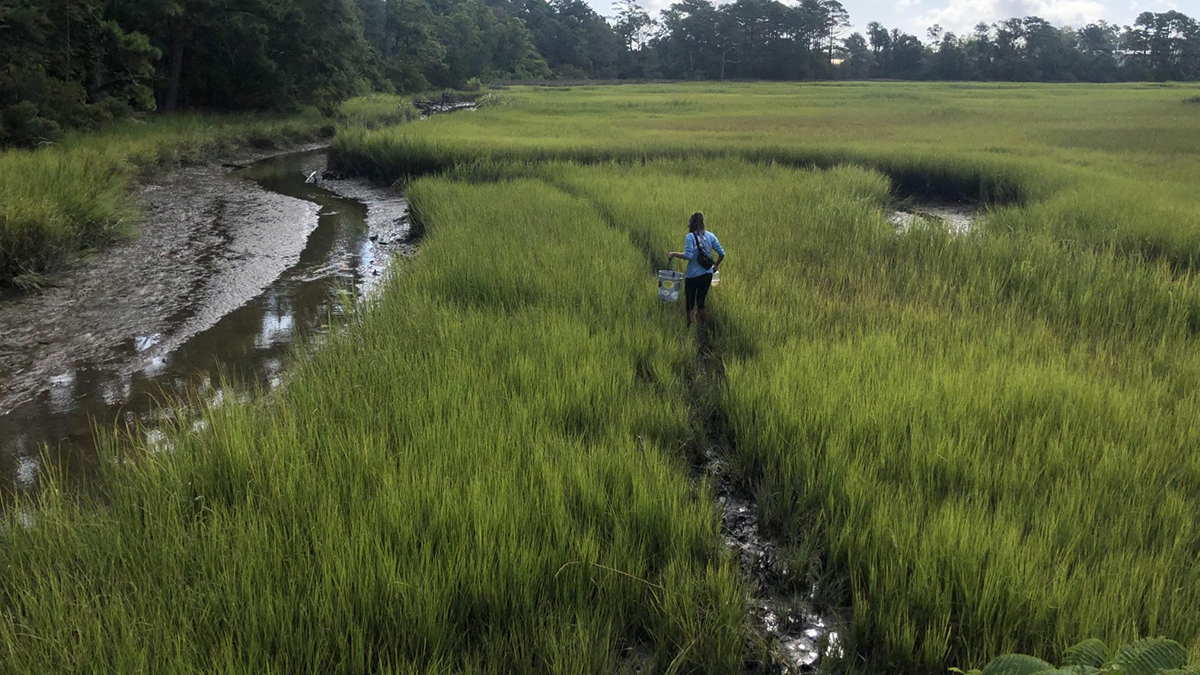Spiritual practicality
A dual graduate degree program through Carolina’s School of Social Work and Duke University’s Divinity School enables students to think critically about faith and social work.
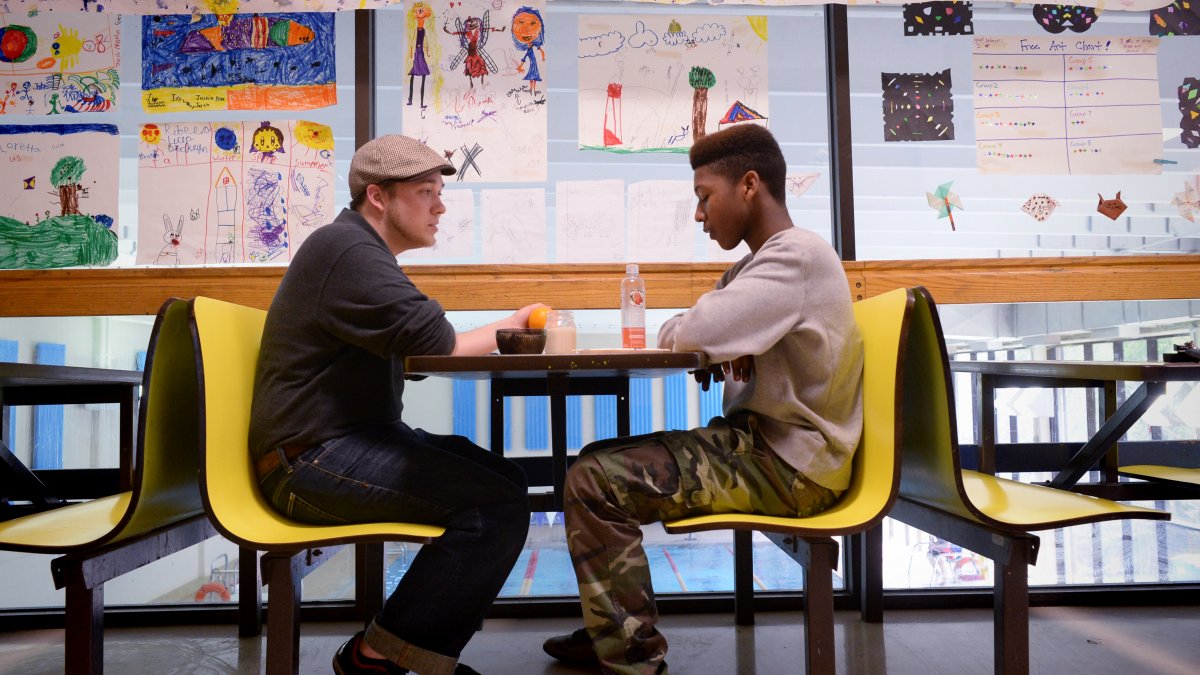
“I’ve learned to think in a way that does not restrict or position me into one particular career, but has opened a lifetime of possibilities for how I want to use my training.” That’s how Dustin Rawlings summed up his experience in the dual graduate degree program through UNC’s School of Social Work and Duke University’s Divinity School.
The program, which marked its 10th year in 2013, enables students to think critically about faith and social work. They also get practical experience in both disciplines.
In seminars during their first and fourth years, students can begin seeing a career path that blends parts of the theological, biblical, theoretical, ethical, pastoral, social justice, empirical and practical dimensions of social work. Among the program’s other facets, students conduct research on critical issues and gather data to help solve problems in churches and faith communities. Students work in field placements with various agencies and as chaplains at hospitals.
Although social work and divinity diverge in some ways, the dual degree program’s goal is to help students consider how combining both disciplines can create change, said Amelia Roberts-Lewis, a School of Social work associate professor who recently retired as program coordinator.
Here, three students reflect on their experiences in the program:
Jon-Erik Misz – A passion for at-risk adolescents
Misz, in his fourth year of the program and second at UNC, will graduate in 2015. Known by friends as “J-E,” he is committed to three causes — helping at-risk teens, food security and spirituality. There is a synergy in his mind as he thinks about the three themes.
“My field placement was with Boomerang of Chapel Hill-Carrboro YMCA, an alternative-to-suspension program for middle and high school students of Orange and surrounding counties. We provide tutoring, counseling, life skills training and a free meal to students during their out-of-school suspension. Boomerang is a safe and welcoming environment for students that can help provide a means for students to have a positive reintegration back into school.
“After graduation from college, I spent two years as a youth pastor. In that time, I met needs that I was completely untrained and unqualified for. I was working with students through addictions, trauma, abuse and major life transitions. I knew that I needed additional training to truly meet the needs of the people in the church. At the same time, I recognized that many of my peers working in churches needed more training and resources as well. I wanted to be a link and resource for these pastors, so I moved from Indiana to North Carolina to be trained by two of the best schools in the country. Since being in this program, I have been inspired by the works and interests of my peers. My experience at Duke has helped me to love God, and my experience at UNC has helped me to love my neighbor. By engaging both in the field of social work and in the work of the church, I am fulfilling my calling and am able to provide hope for what happens when we all work together.”
Kennetra Irby – Holistic healing
Irby is about to enter her fourth year in the program and her second year at UNC. She will graduate in May 2015 During her field placement, she worked as the bilingual family services intern at Durham (N.C.) Early Head Start. This program offers comprehensive child care services to low-income families through health, mental health and educational support.
Irby says that she chose the MSW/M.Div. program because it equips her to inspire people through their faith as well as empower individuals to navigate the social and political systems that often entangle families and communities.
“I am from St. Petersburg, Fla. My mother is an elementary school teacher. My father is a pastor and a photojournalist. They taught me how to see the world from multiple vantage points. They cultivated a servant’s heart within me, and my service has taken me across the globe. As an undergraduate at UNC, I studied Spanish and medical anthropology. While volunteering at UNC hospitals, I became keenly aware of the spiritual, social and financial issues people grapple with as they deal with physical ailments. From this experience I realized my desire to pursue a career that would allow me to merge faith, healing and culture.
“I decided to study social work while working on a prenatal research study at Duke. As I recruited women to participate in the study, I was captivated by the social workers around me, especially those working with Strong Couples, Strong Families, a research study developed by Anne Jones, clinical associate professor in the School of Social Work. These men and women were so passionate about their causes and about helping their clients lead the best lives possible. Their work resonated with my upbringing and my desire to be a resource to people. I began to research graduate programs in 2010.
”I’ve tailored my coursework to address theology and the engagement of others across lines of religion, race, language and ability. I’ve traveled to Central America, Africa and the Midwest, witnessing God at work in cities and on farms, in ornate sanctuaries and in lawn chairs covered by tarp. I love to see how far and wide the love of God stretches. Witnessing the way that, across borders of language, distance and culture, the message of the Gospel still empowers and reflects the story of the human experience has inspired me and challenged me. This challenge has been most experienced during my time at the School of Social Work.
“At the UNC School of Social Work everything does not point to Christ, as it did in the Divinity School. Instead of scriptures, I use theories and frameworks to justify and support the value of spirituality and faith. By spirituality, I mean interconnectedness of others and our inner being. By faith I mean, belief in the ‘big picture.’ Both are deeply ingrained into some, for better or worse. While it has been interesting to research these things, I am saddened by the amount of research that supports how detrimental institutional spaces remain for people of color, especially in the church.
“At times it has been mentally exhausting and spiritually draining, but I believe this experience prepares me to better advocate for addressing and nurturing the spiritual and socioemotional needs of future clients. When social and physical experiences make us question our faith, our hope in the beauty of the future and the gift of the present, there must be a process to initiate healing that calls pastors and parishioners, practitioners and patients into action.”
Dustin Rawlings — Walking toward the margins of society
Rawlings is also in his fourth year in the program and second at UNC. After graduating from East Carolina University, the Durham, N.C., resident spent several years after college managing construction projects before searching for more meaning in the mission work he was doing and enrolling in the program.
His field placement in spring 2014 was with the UNC Center for Excellence in Community Mental Health, where he worked in a critical time intervention (CTI) model with community partners such as psychiatrists and mental health workers.
“After searching several graduate schools, the UNC/Duke program held the most appeal. I wanted to learn more about the practical skills being used in social work, and how to integrate them into my work with mission outreach. I have participated in various mission projects over the years, but I always felt most at home with the poor. Many of these mission trips were forms of charity, and lacked any building of long-term relationships. Duke taught me to be comfortable while walking toward the margins of society, because it is there that I will see life differently, while UNC has taught me the practical skills necessary for being an agent of change. Both programs work to ensure the building of long-term relationships with people.
“This program requires a lot of creativity from its students. It offers a distinct blend of perspectives that pushes us to be innovative in how the two fields merge. The roots of social work are securely grounded in the early work of the church, yet as history unfolded, the road began to diverge. Being a dual degree student is exciting because I get to serve as an ambassador between the two.
“Learning to think theologically at Duke has enriched my overall academic experience, while the practical training I am receiving at UNC has grounded it in a natural way. I was apprehensive at first about how students and faculty at UNC would interpret me as a divinity student, but since have experienced an overwhelming acceptance by the School of Social Work. The UNC program fosters an environment of innovation, exploration and opportunity that has strengthened my commitment to social justice.
“As a four-year graduate program it’s been challenging, but life has been rewarding. I’ve learned to think in a way that does not restrict or position me into one particular career, but has opened a lifetime of possibilities for how I want to use my training. For an academic program to provide the foundation for that is remarkable, and I am truly grateful.”
Read more about the School of Social Work’s dual degree programs.
Read an article about one student’s experience in the program.

